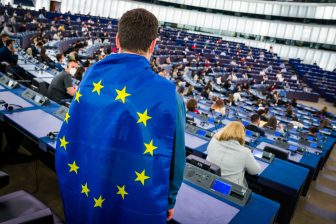
UN guidance for countries on how to protect kids’ digital rights
New legal guidance issued by the United Nations’ human rights arm sets out how countries should protect children’s ‘digital rights’.
The UN Committee on the Rights of the Child has issued the guidance after a two-year consultation with countries’ central governments, inter-governmental organisations, national human rights institutions and children.
More than 700 children and young people, aged between nine and 22 years old in 27 countries, were asked how digital technology impacts their rights, and what actions they want to see taken to protect them.
The committee’s guidance emphasises that the rights of every child must be respected, protected and fulfilled in the digital environment. Children should have access to age-appropriate and empowering digital content and information from a wide diversity of trusted sources.
‘Meaningful access to digital technologies can empower children’
Made up of 18 individual experts, the committee recommends that countries take robust legislative and administrative measures to protect children from harmful and misleading content. Children should also be protected from all forms of violence that happens in the digital environment, including child trafficking, gender-based violence, cyber-aggression, cyber-attacks and information warfare.
Luis Pedernera, Chair of the committee, said: “Meaningful access to digital technologies can empower children and support them to realise the full range of their civil, political, cultural, economic and social rights. If such technologies are available only for some children and not others, it will lead to greater inequalities and affect their opportunities for the future.”
The Committee also emphasised the importance of protecting children’s privacy at all times. Children and their parents should be able to easily access and delete data stored by public authorities or private companies.
‘Businesses should not target or profile children’
“Any digital surveillance of children should respect their right to privacy and should never be conducted without their knowledge and informed consent,” added Pedernera.
Countries should also ensure that businesses respect children’s rights and prevent and remedy abuse of their rights in relation to the digital environment. “Businesses should not profile or target children for commercial purposes on the basis of the children’s digital records, nor should they use immersive advertising and advertising in virtual environments to promote products and services to children,” said Pedernera.
Speaking as one, a group of children from Ghana, told the consultation: “We would like the government, technology companies and teachers to help us [to] manage untrustworthy information online. A 16-year-old girl from Germany also said: “I would like to obtain clarity about what really happens with my data.”
Click here to view the guidance.



